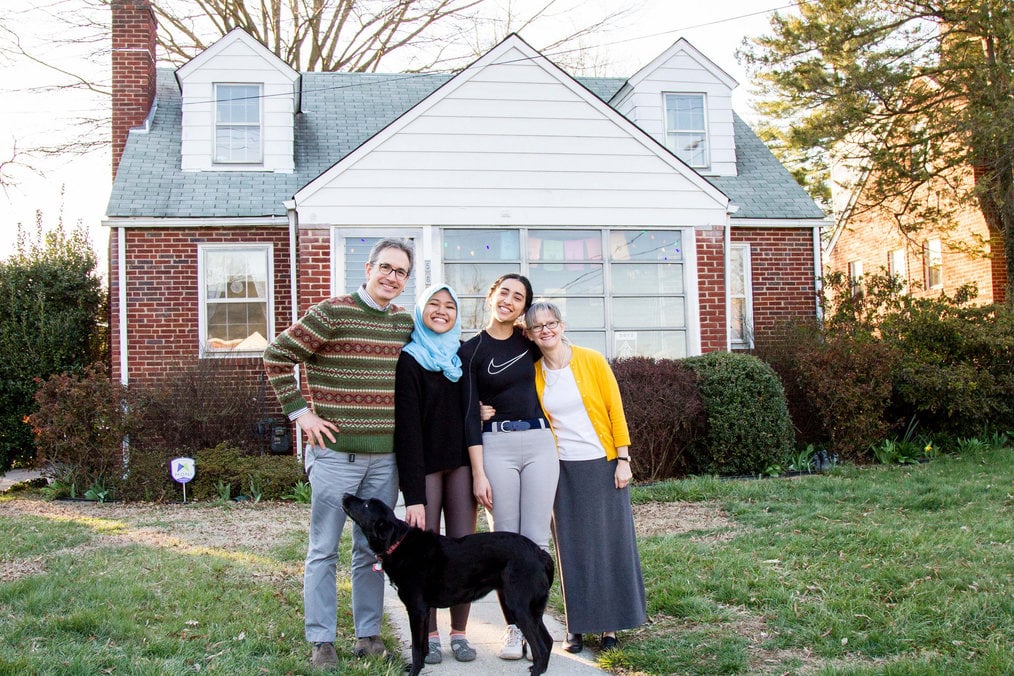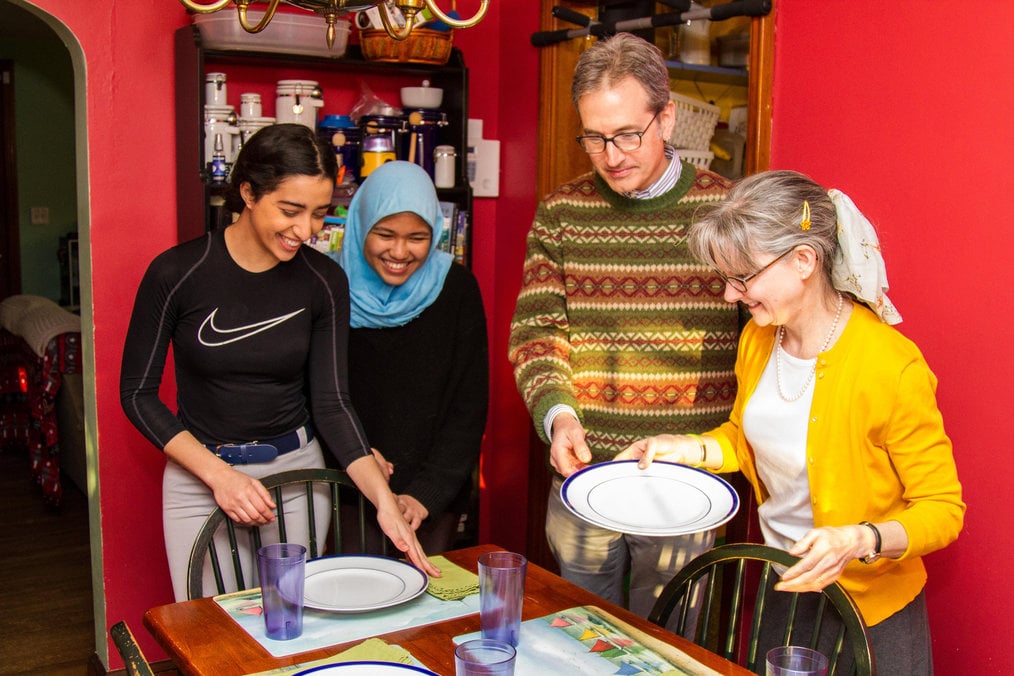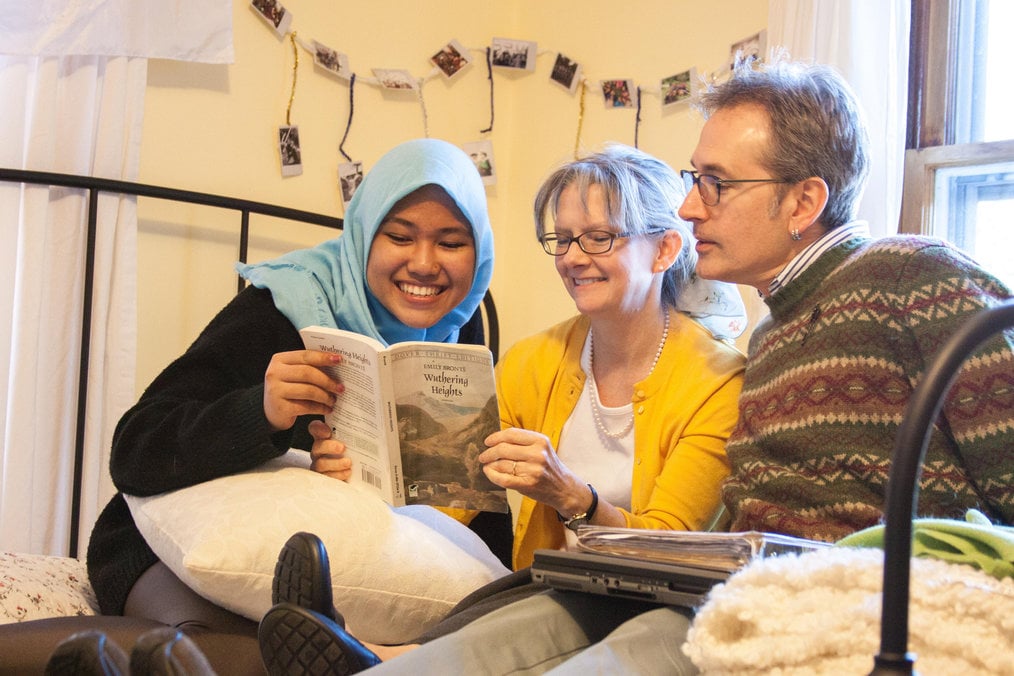12 Do's & Dont's for Your Study Abroad Homestay
Learn how to navigate a study abroad homestay with these 12 tips. We've compiled the top do's and don'ts to help you fit in with your new homestay family.
TLDR 👀
- Every homestay requires an adjustment period for both student and host.
- Take advantage of opportunities to practice your language skills, learn about their culture and customs, and spend time doing activities together.
- Avoid being too high maintenance, sporting a bad attitude, and failing to clean up after yourself. You're a guest, after all!
- Engaging with your host family through open communication and mutual respect will go a long way.

You’ve decided to do a homestay program while studying abroad... and it's a little scary to think you'll be living in someone else's home. Don't worry; there's far more reason to be excited than nervous about your upcoming homestay experience!
Homestay programs are a fabulous way to immerse yourself in a different culture, enjoy homemade local cuisine, and learn a foreign language. You’ll study and build your academic resume by day, and expand your cultural knowledge by night.
The truth is: homestays can require a bit of adjustment, initially. Between foreign language mishaps, unfamiliar customs and climates, and bouts of homesickness, you might find it harder to adapt than expected. But if you’ve weighed out the pros and cons of choosing a homestay while studying abroad, and are planning to take the plunge, here’s how to prepare yourself for the exciting journey ahead.
What to Do During Your Homestay

Because you are living in someone else's house, in a different country, chances are things will be done differently than in your house. However, if you are able to cooperate, respect, and compromise with your host family during your stay, all should go smoothly.
1. Do Make Your Needs Known
Thoughtfully fill out your program application when requesting a homestay. While it might be tempting to paint yourself as super flexible and cheerful, you’ll quickly regret not being more honest. Dietary restrictions, allergies, and pet preferences are important things to mention in your application. The more you communicate with the organization, the better equipped they will be to match you up with a suitable host family.
2. Do Join Your Host Family for Meals
Most study abroad programs will give you the option to include meals in your homestay. Resist the urge to hide in your room for the entire semester and join your host family for at least one meal each day. You’ll learn more about their culture and respect familial customs. Plus, table time is the perfect time to practice the local language. You’ll feel like part of the family in no time!
3. Do Discuss House Rules within the First Few Days
Things are going to feel overwhelming the first few days of your study abroad program. You’ll be figuring out classes and the curriculum, and will probably get lost on your way home two or three times. Nevertheless, it is important to navigate your way through the chaos and make sure you understand your host family’s house rules and expectations.
Find out whether you have a curfew, what time meals are served, and rules about smoking and alcohol. Can you serve yourself food from their kitchen or prepare your own meals? Communication is key.
4. Do Bring a Gift for Your Host Family
While you’re packing your best outfits for the next few months of study overseas, don’t forget to bring a gift -- preferably representative of your own culture -- to give your host family. It is a great way to break the ice with them and set a foundation for a warm friendship.
If you are given some information about the host family before your visit, try to tailor the gift to the ages and gender identities of family members. They'll appreciate the thought put into it.
5. Do Be Respectful of Local Customs & Laws
Regardless of whether you’ve decided to stay with a host family or in a dorm or hotel, you should always be cognizant of local traditions and religious cultures. Some countries may not allow women to bear their midriff or shoulders, others may not allow hand-holding or other displays of affection in public. As a guest in someone else's home, it's important to respect their rules, customs, and laws.
Remember: whether you agree with it or not, your passport doesn’t make you above the law. Your behavior represents you, your study abroad program, your host family, and your home country. Don't take lightly the responsibility to represent yourself and other people well.
6. Do Communicate with Your Study Abroad Program’s Placement Office
In the event that you are persistently displeased with some aspect of your homestay and communication with the family has not helped, try reaching out to your study abroad program’s placement office, rather than waiting until it is over to leave a bad review.
Chances are they have a mediation protocol or, if things are bad enough, they will move you to another family that is more suitable to your lifestyle and personality. On the flip side, if you absolutely adore your host family, brag about them! The organization should know how valuable this family is so they continue to send guests their way.
What Not to Do During Your Homestay
Now that you know six of the most important things to do during your homestay program, let’s review what not to do. Frustration, homesickness, and miscommunication are inevitable, but it is never an excuse to disrespect your host’s home. You are both a guest and an extension of their family.
1. Don’t Be a Slob
Even if your family offers to do your laundry and clean up after you, make an effort to keep your room as tidy as possible. Common courtesy tells us that when we are staying as a guest (even if we are paying for it), we ought to respect the host's home even more than we would our own. This will go a long way in maintaining a positive and respectful relationship with the family.
Take the initiative and offer to do chores, cook a meal, or pick up some groceries while you’re out. In many cultures, a family would never ask a guest to pitch in, but they will gladly accept your kindness as a gift in gratitude.
2. Don’t Be a Diva
If you were lucky enough to grow up in a country with consistent postal service, clean tap water, and a robust economy, you might experience culture shock if you move to a less developed location. Try to distinguish between poor hospitality and poor circumstances during your homestay -- and avoid acting like a privileged diva.
Complaining about the lack of heat in a house that doesn't have access to it... that's being a diva. Asking permission to grab extra blankets at night is being respectful. If you are uncomfortable in your host’s home, kindly communicate with them if you see it is something they have the ability to remedy.
3. Don’t Be a Pushover, Either
There are times when constructive feedback is necessary. The vast majority of host families will be gracious and welcoming, but there might be rare cases when hosts simply don’t fulfill their part of the agreement or are so unpleasant that the experience becomes toxic for you.
You deserve to have a positive experience abroad, so speak up about the problem. If it’s really bad enough, connect with your placement program office and inquire about being moved to another home. They are there to support you.
4. Don’t Be Afraid to Practice Speaking Their Language
Many study abroad students (even advanced language learners) freeze up when practicing the local language with their host family. Out of fear of insulting them with butchered linguistic attempts, they often miss out on opportunities to improve.
Talk with your family; you will make mistakes. Then laugh about it and let them correct you. You’ll learn colloquial terms your language textbook would never teach you and, if you’re lucky enough to have host siblings, you’ll catch on to all the cool slang.
5. Don’t Forget to Make Other Friends
You decided to study abroad because you wanted to experience something new. Explore a new neighborhood every weekend, take day trips to nearby cities, and meet people from around the world. If you are fortunate enough to be happily-at-home with your host family, though, you might fall into a routine and later realize you haven’t done anything on your study abroad bucket list!
There is an entire community out there to meet and new perspectives to hear. It’s wonderful to bond with your hosts and spend time with them outside the house, but try not to rely on them for all of your socializing. Go out alone every once in a while, get lost, make new friends, then come home and laugh about the stories with your family.
6. Don’t Leave Without Expressing Gratitude
The longer you live with a host family, the more ups and downs you will experience together. When it comes time to leave, you might be feeling some relief about getting back to a more familiar place. Regardless of the circumstances upon leaving, you should make an effort to express your gratitude to the family for letting you into their home and sharing their lives with you.
Try writing a heart-warming “thank you” letter in their native language, take them to dinner, or leave a special gift. Don’t forget to keep in touch, too. Thanks to Facebook, What’s App, and Skype, we now have easy ways to stay in touch with our friends and families overseas.
Make Some Meaningful Connections Abroad

Your homestay is an important part of studying abroad. It might seem scary now, but it can easily be one of the most memorable parts of your experience studying abroad -- and give you a true connection to your host country in a way living in a dorm might not. With a little flexibility, gratitude, and an open mind, you might find it to be one of the best parts of the experience. Be curious, be communicative, and most of all, have fun!
This post was originally published in April 2013, and was updated in August 2021.



